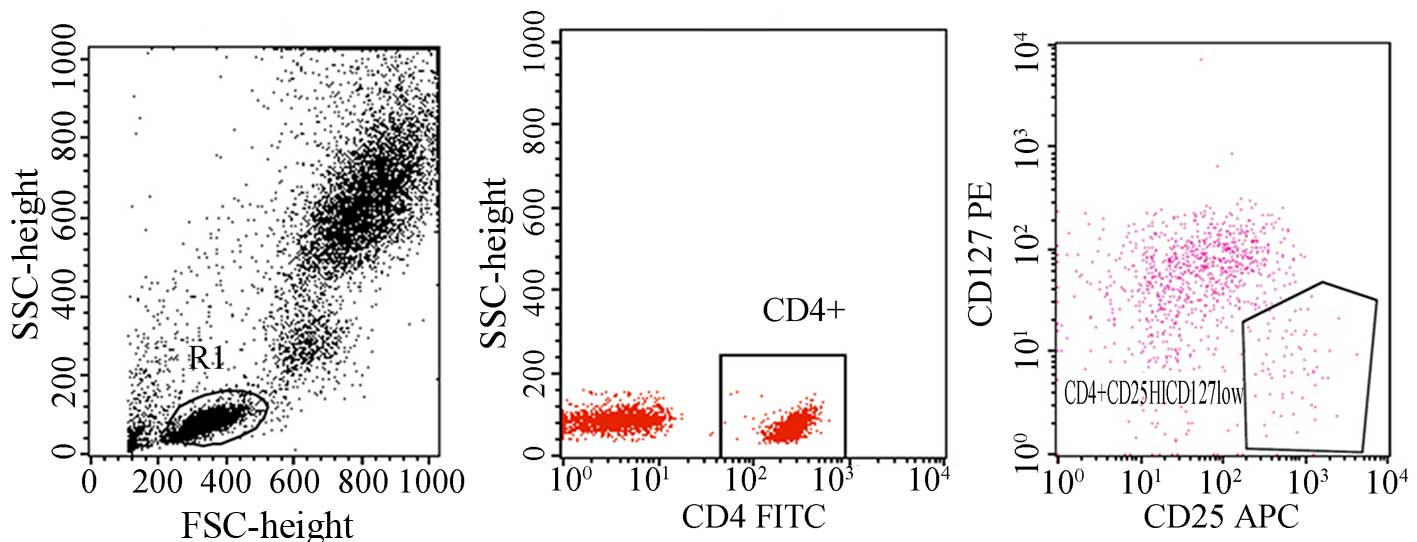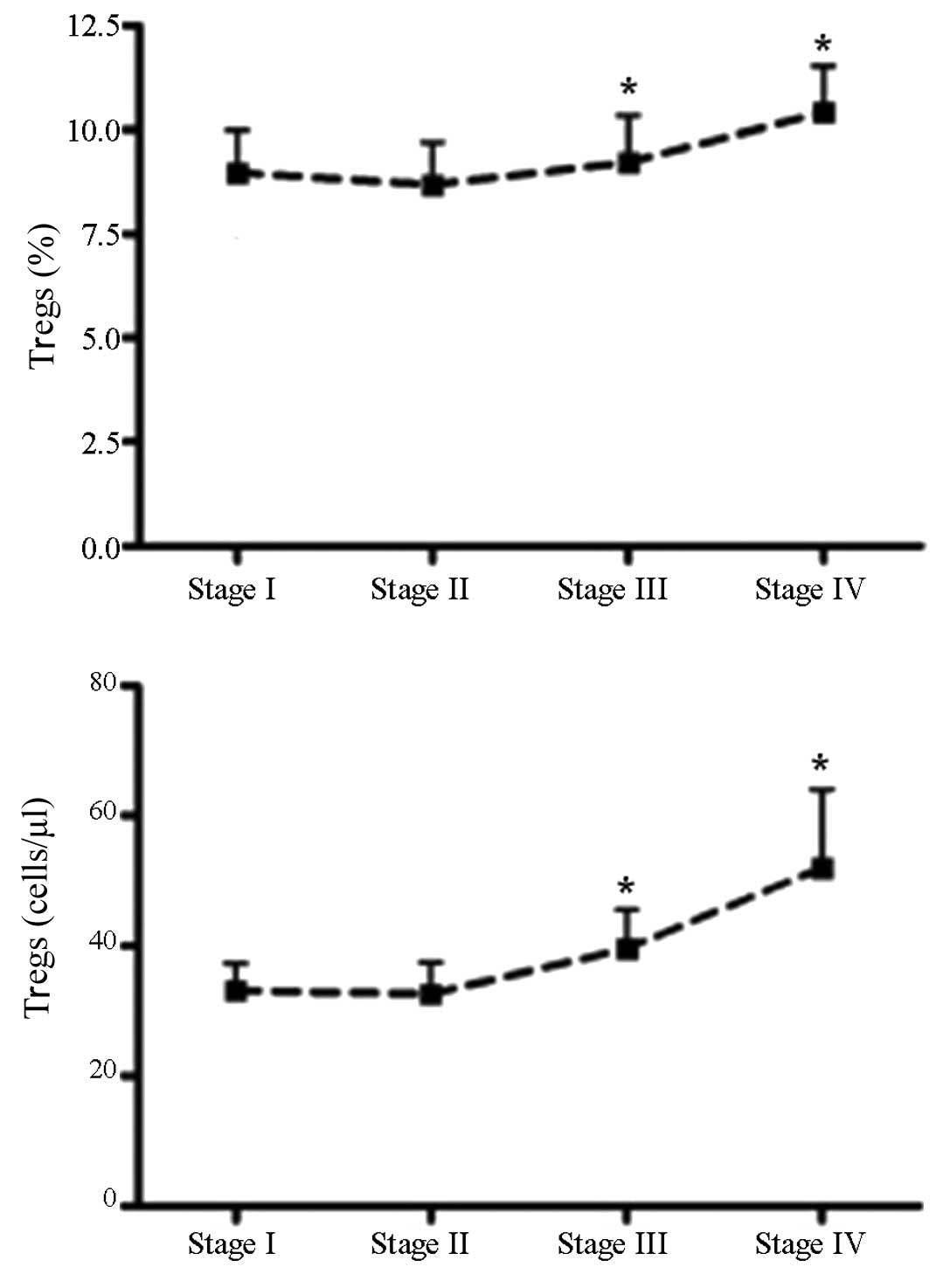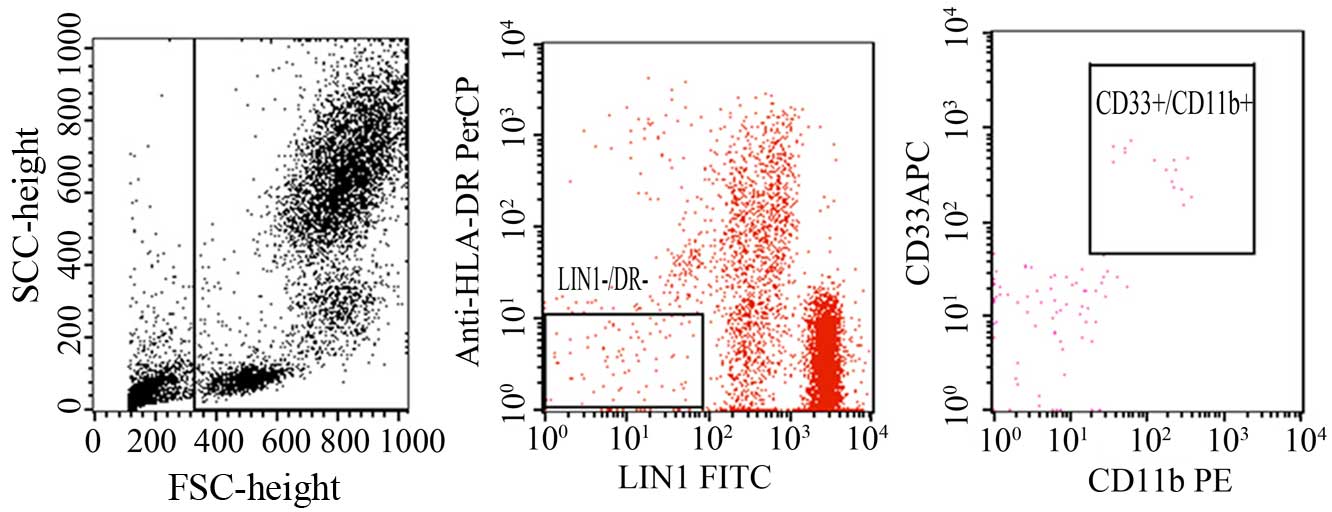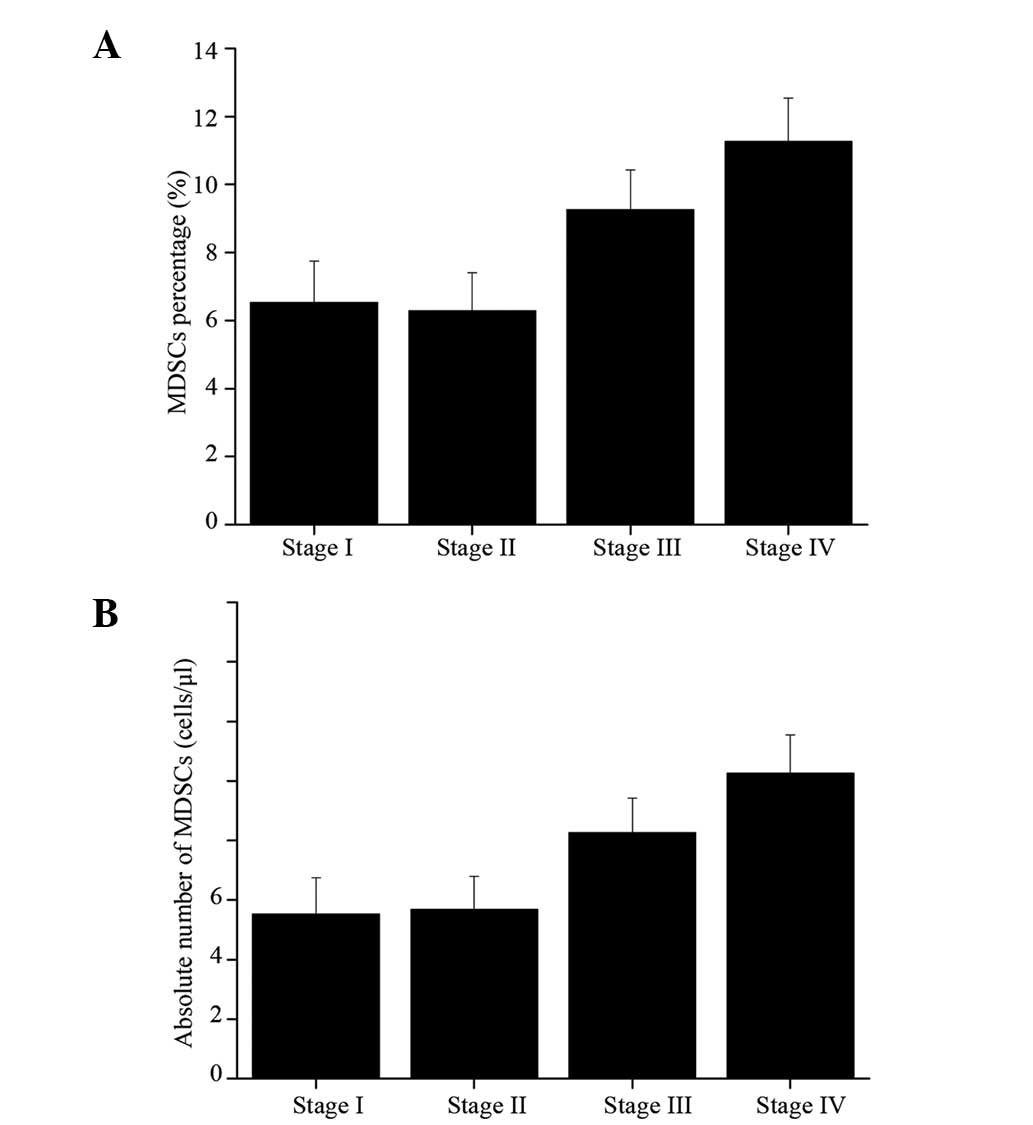|
1
|
Forrest AP, Stewart HJ, Everington D,
Prescott RJ, McArdle CS, Harnett AN, Smith DC and George WD:
Scottish Cancer Trials Breast Group: Randomised controlled trial of
conservation therapy for breast cancer: 6-year analysis of the
Scottish trial. Lancet. 348:708–713. 1996. View Article : Google Scholar : PubMed/NCBI
|
|
2
|
Stewart BW and Kleihues P: World cancer
report. International Agency for Research on Cancer. IARC Press.
(Lyon). 2003.
|
|
3
|
Mehta P: Potential role of platelets in
the pathogenesis of tumor metastasis. Blood. 63:55–63.
1984.PubMed/NCBI
|
|
4
|
Gilboa E: The risk of autoimmunity
associated with tumor immunotherapy. Nat Immunol. 2:789–792. 2001.
View Article : Google Scholar : PubMed/NCBI
|
|
5
|
Mizukami Y, Kono K, Kawaguchi Y, Akaike H,
Kamimura K, Sugai H and Fujii H: Localisation pattern of Foxp3+
regulatory T cells is associated with clinical behaviour in gastric
cancer. Br J Cancer. 98:148–153. 2008. View Article : Google Scholar : PubMed/NCBI
|
|
6
|
Allan SE, Crome SQ, Crellin NK, Passerini
L, Steiner TS, Bacchetta R, Roncarolo MG and Levings MK:
Activation-induced FOXP3 in human T effector cells does not
suppress proliferation or cytokine production. Int Immunol.
19:345–354. 2007. View Article : Google Scholar : PubMed/NCBI
|
|
7
|
Hezova R, Slaby O, Faltejskova P,
Mikulkova Z, Buresova I, Raja KR, Hodek J, Ovesna J and Michalek J:
MicroRNA-342, microRNA-191 and microRNA-510 are differentially
expressed in T regulatory cells of type 1 diabetic patients. Cell
Immunol. 260:70–74. 2010. View Article : Google Scholar : PubMed/NCBI
|
|
8
|
Nagaraj S and Gabrilovich DI:
Myeloid-derived suppressor cells. Adv Exp Med Biol. 601:213–223.
2007. View Article : Google Scholar : PubMed/NCBI
|
|
9
|
Srivastava MK, Bosch JJ, Thompson JA,
Ksander BR, Edelman MJ and Ostrand-Rosenberg S: Lung cancer
patients' CD4(+) T cells are activated in vitro by MHC II
cell-based vaccines despite the presence of myeloid-derived
suppressor cells. Cancer Immunol Immunother. 57:1493–1504. 2008.
View Article : Google Scholar : PubMed/NCBI
|
|
10
|
Diaz-Montero CM, Salem ML, Nishimura MI,
Garrett-Mayer E, Cole DJ and Montero AJ: Increased circulating
myeloid-derived suppressor cells correlate with clinical cancer
stage, metastatic tumor burden, and doxorubicin-cyclophosphamide
chemotherapy. Cancer Immunol Immunother. 58:49–59. 2009. View Article : Google Scholar : PubMed/NCBI
|
|
11
|
Poschke I, Mougiakakos D, Hansson J,
Masucci GV and Kiessling R: Immature immunosuppressive
CD14+HLA-DR-/low cells in melanoma patients are Stat3hi and
overexpress CD80, CD83, and DC-sign. Cancer Res. 70:4335–4345.
2010. View Article : Google Scholar : PubMed/NCBI
|
|
12
|
Adegboyega TO, Landercasper J, Linebarger
JH, et al: Institutional review of compliance with NCCN guidelines
for breast cancer: Lessons learned from real-time multidimensional
synoptic reporting. J Natl Compr Canc Netw. 13:177–183.
2015.PubMed/NCBI
|
|
13
|
Ulmer AJ, Scholz W, Ernst M, Brandt E and
Flad HD: Isolation and subfractionation of human peripheral blood
mononuclear cells (PBMC) by density gradient centrifugation on
Percoll. Immunobiology. 166:238–250. 1984. View Article : Google Scholar : PubMed/NCBI
|
|
14
|
Lyons AB and Parish CR: Determination of
lymphocyte division by flow cytometry. J Immunol Methods.
171:131–137. 1994. View Article : Google Scholar : PubMed/NCBI
|
|
15
|
Nagaraj S and Gabrilovich DI:
Myeloid-derived suppressor cells in human cancer. Cancer J.
16:348–353. 2010. View Article : Google Scholar : PubMed/NCBI
|
|
16
|
Filipazzi P, Huber V and Rivoltini L:
Phenotype, function and clinical implications of myeloid-derived
suppressor cells in cancer patients. Cancer Immunol Immunother.
61:255–263. 2012. View Article : Google Scholar : PubMed/NCBI
|
|
17
|
Wang L, Chang EWY, Wong SC, Ong S-M, Chong
DQ and Ling KL: Increased myeloid-derived suppressor cells in
gastric cancer correlate with cancer stage and plasma S100A8/A9
proinflammatory proteins. J Immunol. 190:794–804. 2013. View Article : Google Scholar : PubMed/NCBI
|
|
18
|
Mohapatra SS, Bharadwaj SN and Mohapatra
S: Compositions and methods for modulating myeloid derived
suppressor cells. US Patent 20140336239 A1. Filed December 3, 2011;
issued November 13. 2014.
|
|
19
|
Lindau D, Gielen P, Kroesen M, Wesseling P
and Adema GJ: The immunosuppressive tumour network: myeloid-derived
suppressor cells, regulatory T cells and natural killer T cells.
Immunology. 138:105–115. 2013. View Article : Google Scholar : PubMed/NCBI
|
|
20
|
Gros A, Turcotte S, Wunderlich JR,
Ahmadzadeh M, Dudley ME and Rosenberg SA: Myeloid cells obtained
from the blood but not from the tumor can suppress T-cell
proliferation in patients with melanoma. Clin Cancer Res.
18:5212–5223. 2012. View Article : Google Scholar : PubMed/NCBI
|
|
21
|
Lechner MG, Megiel C, Russell SM, Bingham
B, Arger N, Woo T and Epstein AL: Functional characterization of
human Cd33+ and Cd11b+ myeloid-derived suppressor cell subsets
induced from peripheral blood mononuclear cells co-cultured with a
diverse set of human tumor cell lines. J Transl Med. 9:902011.
View Article : Google Scholar : PubMed/NCBI
|
|
22
|
Sakaguchi S: Naturally arising
Foxp3-expressing CD25+CD4+ regulatory T cells in immunological
tolerance to self and non-self. Nat Immunol. 6:345–352. 2005.
View Article : Google Scholar : PubMed/NCBI
|
|
23
|
Ramsdell F: Foxp3 and natural regulatory T
cells: Key to a cell lineage? Immunity. 19:165–168. 2003.
View Article : Google Scholar : PubMed/NCBI
|
|
24
|
Zhang B, Wang Z, Wu L, Zhang M, Li W, Ding
J, Zhu J, Wei H and Zhao K: Circulating and tumor-infiltrating
myeloid-derived suppressor cells in patients with colorectal
carcinoma. PLoS One. 8:e571142013. View Article : Google Scholar : PubMed/NCBI
|
|
25
|
Hein F, Massin F, Cravoisy-Popovic A,
Barraud D, Levy B, Bollaert PE and Gibot S: The relationship
between CD4+CD25+CD127- regulatory T cells and inflammatory
response and outcome during shock states. Crit Care. 14:R192010.
View Article : Google Scholar : PubMed/NCBI
|
|
26
|
Liu W, Putnam AL, Xu-Yu Z, Szot GL, Lee
MR, Zhu S, Gottlieb PA, Kapranov P, Gingeras TR, de Fazekas St
Groth B, et al: CD127 expression inversely correlates with FoxP3
and suppressive function of human CD4+ T reg cells. J Exp Med.
203:1701–1711. 2006. View Article : Google Scholar : PubMed/NCBI
|


















